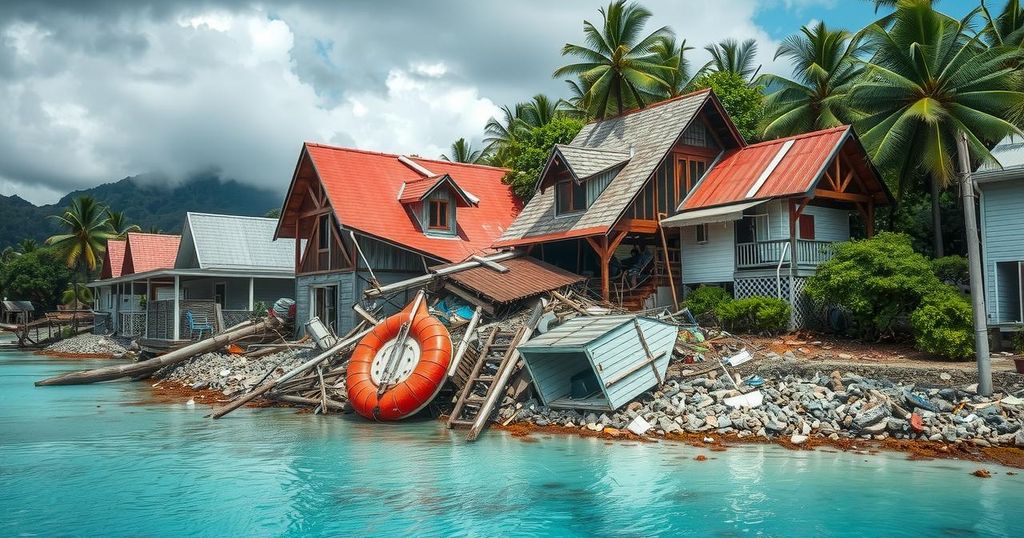Disasters Strike Vanuatu and Cyclone Chido Ravages Southeast Africa
Tropical Cyclone Chido caused widespread destruction in Mayotte, Comoros, and Mozambique, while a 7.3-magnitude earthquake struck Vanuatu shortly after. Direct Relief is coordinating relief efforts to address urgent healthcare needs and prevent long-term health risks in the wake of these disasters, with a history of effective emergency response.
In recent days, both Tropical Cyclone Chido and a powerful earthquake have wreaked havoc in various regions, leaving communities grappling with severe destruction. Cyclone Chido recently struck the Mayotte archipelago, Comoros, and Mozambique, marking the most powerful storm to hit Mayotte in over 90 years with winds exceeding 140 miles per hour and devastating storm surges. Although official reports indicate 22 fatalities in Mayotte, that number is expected to rise significantly given the overwhelming extent of the damage. In Comoros, President Azali Assoumani announced a week of mourning due to the extensive loss and damage sustained, while the storm also severely affected Mozambique, compounding its existing vulnerabilities.
Simultaneously, the Pacific island nation of Vanuatu was rocked by a 7.3-magnitude earthquake that resulted in widespread destruction to its infrastructure and healthcare services, with aftershocks raising additional concerns. In response to these calamities, Direct Relief is actively coordinating efforts to assess and address the healthcare needs in the affected regions, working with local and international partners to deliver essential medical supplies and support.
Natural disasters such as cyclones and earthquakes pose an immediate threat due to mass casualties and overwhelming trauma, as well as long-term health risks. Infectious diseases may spread due to water contamination, and displacement of communities into overcrowded shelters can lead to increased health risks. Vulnerable groups, particularly pregnant women and those with chronic health conditions, face heightened dangers when healthcare services are disrupted.
Direct Relief has a proven track record in disaster response, having provided significant support following past natural disasters, such as Cyclone Idai and various earthquakes across the globe. The organization prioritizes timely medical assistance through pre-positioned resources and strategic partnerships with local healthcare providers, ensuring a responsive and effective relief process. As the aftermath of Cyclone Chido and the earthquake in Vanuatu unfolds, Direct Relief remains dedicated to facilitating recovery efforts and ensuring that those in dire need receive the medical care required.
The article discusses the recent devastation caused by Tropical Cyclone Chido and a subsequent earthquake in Vanuatu. Natural disasters, including cyclones and earthquakes, often lead to widespread destruction, overwhelming local healthcare systems, and posing it to serious public health risks. The response from humanitarian organizations like Direct Relief demonstrates the importance of providing timely medical assistance and addressing both immediate and long-term health challenges faced by affected communities.
In summary, the combination of Tropical Cyclone Chido and the earthquake in Vanuatu has resulted in catastrophic consequences for many communities. The need for immediate and sustained medical assistance is paramount, as health risks proliferate following such disasters. Direct Relief’s commitment to disaster response exemplifies a proactive approach to alleviating suffering and ensuring that healthcare systems are supported during these difficult times.
Original Source: www.directrelief.org




Post Comment